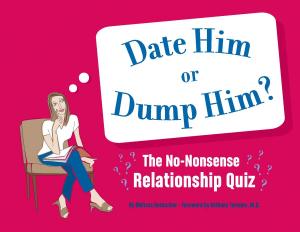| Author: | Bill Kahn | ISBN: | 9781311996466 |
| Publisher: | Bill Kahn | Publication: | May 18, 2015 |
| Imprint: | Smashwords Edition | Language: | English |
| Author: | Bill Kahn |
| ISBN: | 9781311996466 |
| Publisher: | Bill Kahn |
| Publication: | May 18, 2015 |
| Imprint: | Smashwords Edition |
| Language: | English |
How do you protect your life against “Legal Scams?” In the context of this book, scam is used for short-hand purposes only as it encompasses the field of scams, frauds and cons. The term “Legal Scams” seems like an oxymoron since scams are normally associated with illegal activities. Many of the actions outlined come very close to the illegal line; some may even step over it a bit. Regardless, the objectives of both types are the same; get your money, although there may be other reasons such as affecting interpersonal relationships. Even with the differences between the legal and quasi-legal, you can be placed in jeopardy for your health, prevent you from taken needed action, obtaining a poor product or not getting what was expected.
Legal scams are typically run by companies sometimes individuals acting as a company and often by elected government officials in conjunction with companies. These types affect just about everyone. They are designed to mislead through false statements or pictures or concealing pertinent information they are not legally required to provide. Their ultimate action, whether intentional or not is to take money or goods using existing laws or the lack of laws covering some particular action.
This might be done by a government passing a law where the function was previously considered illegal but the new law makes it legal. It could also be done by a company working within the law to mislead, persuade or exploit the characteristics of the human psyche such as honesty, vanity, compassion, credulity, irresponsibility, gullibility, or greed. Unfortunately, it all comes down to trust of a company or our own government causing a person to take some action they may not normally take.
Usually, the term “Fraud” has a very clear definition in the legal sense. For a “Legal Fraud," it might be something as simple as language in a contract’s terms & conditions. Although, it may be perfectly legal, it may not be in a person’s best interest. The company does it because they might be sure no one will read it and thus can get away with it.
The term “Con” is synonymous with the term “Bamboozle” or “Snow Job.” This action may be done by a picture, video or any one of a number of other media. It could be as simple as twisting words around to fool you into thinking it’s something it’s not.
It should be noted even if the practice is considered legal; various government agencies have the ability to seek action to prevent deceptive and misleading claims: Federal Trade Commission, Food and Drug Administration and State Attorneys Generals. Companies wanting to stay out of their grasp are careful to come just up to the line to where government action might take place.
It’s unfortunate that many companies work in conjunction with governments to get at your money using legal scams. You may be able to side step non-governments scams. Unfortunately, those perpetrated by governments themselves may be impossible to avoid.
Think more of this book as a mystery novel, where you have to look for the clues to find out how you are being taken. Some of the clues will pop-out at you or are self-evident, where others take investigation. This book looks at the “Characteristics” of Scams, which consequentially makes the clues easier to identify for a broader class of scams.
Each chapter explains what to look for and how to avoid being scammed. Many explain just the general characteristics of a particular class of scam since the solution is self-evident. Chances are you’re not familiar with Legal scams since they probably happen to you every day without your even knowing it. There is one very important factor that you should keep in mind, “The Supreme Court has ruled that lying is not illegal so long as one is not under oath,” and is the basis of many of the legal scams you will encounter.
How do you protect your life against “Legal Scams?” In the context of this book, scam is used for short-hand purposes only as it encompasses the field of scams, frauds and cons. The term “Legal Scams” seems like an oxymoron since scams are normally associated with illegal activities. Many of the actions outlined come very close to the illegal line; some may even step over it a bit. Regardless, the objectives of both types are the same; get your money, although there may be other reasons such as affecting interpersonal relationships. Even with the differences between the legal and quasi-legal, you can be placed in jeopardy for your health, prevent you from taken needed action, obtaining a poor product or not getting what was expected.
Legal scams are typically run by companies sometimes individuals acting as a company and often by elected government officials in conjunction with companies. These types affect just about everyone. They are designed to mislead through false statements or pictures or concealing pertinent information they are not legally required to provide. Their ultimate action, whether intentional or not is to take money or goods using existing laws or the lack of laws covering some particular action.
This might be done by a government passing a law where the function was previously considered illegal but the new law makes it legal. It could also be done by a company working within the law to mislead, persuade or exploit the characteristics of the human psyche such as honesty, vanity, compassion, credulity, irresponsibility, gullibility, or greed. Unfortunately, it all comes down to trust of a company or our own government causing a person to take some action they may not normally take.
Usually, the term “Fraud” has a very clear definition in the legal sense. For a “Legal Fraud," it might be something as simple as language in a contract’s terms & conditions. Although, it may be perfectly legal, it may not be in a person’s best interest. The company does it because they might be sure no one will read it and thus can get away with it.
The term “Con” is synonymous with the term “Bamboozle” or “Snow Job.” This action may be done by a picture, video or any one of a number of other media. It could be as simple as twisting words around to fool you into thinking it’s something it’s not.
It should be noted even if the practice is considered legal; various government agencies have the ability to seek action to prevent deceptive and misleading claims: Federal Trade Commission, Food and Drug Administration and State Attorneys Generals. Companies wanting to stay out of their grasp are careful to come just up to the line to where government action might take place.
It’s unfortunate that many companies work in conjunction with governments to get at your money using legal scams. You may be able to side step non-governments scams. Unfortunately, those perpetrated by governments themselves may be impossible to avoid.
Think more of this book as a mystery novel, where you have to look for the clues to find out how you are being taken. Some of the clues will pop-out at you or are self-evident, where others take investigation. This book looks at the “Characteristics” of Scams, which consequentially makes the clues easier to identify for a broader class of scams.
Each chapter explains what to look for and how to avoid being scammed. Many explain just the general characteristics of a particular class of scam since the solution is self-evident. Chances are you’re not familiar with Legal scams since they probably happen to you every day without your even knowing it. There is one very important factor that you should keep in mind, “The Supreme Court has ruled that lying is not illegal so long as one is not under oath,” and is the basis of many of the legal scams you will encounter.















